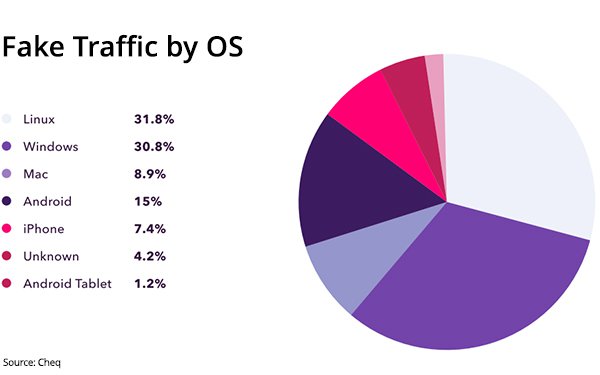Commentary
When Cheq CEO Sat Down With X's Elon Musk
- by Laurie Sullivan , Staff Writer @lauriesullivan, March 25, 2024

It took Cheq CEO Guy Tytunovich many months and a reference from Israel's Prime Minister to secure time to sit down and talk with X's Elon Musk about hackers and misinformation across his platform. The outcome might surprise some.
Cheq publishes a report each year related to fake traffic. This year around the Super Bowl, ad traffic from Instagram, Facebook, YouTube, and TikTok came in at 2% or less, but nearly 76% of the ad traffic on X that Cheq viewed during the Super Bowl was invalid.
“We’ve never seen these numbers before,” Tytunovich said.
Tytunovich met with Musk to talk about the Israel-Gaza war, but he said they also spoke about the rise of fake online traffic -- especially on X. Its mission statement is to be the source of truth on the Internet. In order to achieve that, the platform needs to get rid of fake traffic.
advertisement
advertisement
Musk told Tytunovich there is more than one side to the truth. “There isn’t,” Tytunovich replied. "There are opinions, but only one truth."
He added: "I don’t know what the truth is. I only know if a user is a human or bot.”
Musk refuted the numbers.
Given that the world is on the “verge of World War III,” Tytunovich said, with conflicts in Gaza, Ukraine, and Haiti, "it seems like the new weapon of mass destruction is public opinion. The social media platforms are the number one player that’s vulnerable to that. And while some do more to fight fake traffic, some do less.”
The rise of generative artificial intelligence made fake posts and bots incredibly easy, he said, pointing to the heated political environment -- especially in the U.S.
The meeting between Tytunovich and Musk did not yield a new opportunity with the social media platform for Cheq, but he did get to share the data seen around antisemitism, violence and fake traffic.
The internet has enabled the rise of many industries and giants including Amazon and Google. One thing many people do not realize is that an equally established ecosystem has developed with fake traffic, he said.
Through its technology, Cheq saw a 58% spike from 2022 to 2024 to 17.9% in fake website traffic from bots, while malicious bots rose 32% year-over-year (YoY). The numbers are based on billions of unique user engagements per week, according to The State of Fake Traffic 2024 analyzing 2023 traffic.
In Retail, Software/Tech, and Finance, the rate of fake traffic came in at 15.5%, 15.0% and 17.6%, respectively.
Compared with mobile, desktop was the most significant source of all fake traffic in 2024.
Basic browser automation tools accounted for 24.05% of all fake traffic in 2023. The retail and ecommerce sectors suffered the highest incidence by volume, suggesting the widespread use of these tools for scraping and abuse.
The most frequently detected automation tools were Selenium -- a popular open-source browser automation framework -- and Marionette, Mozilla's automation driver for controlling and interacting with the Firefox web browser.
Invalid traffic originating from data centers grew 44% YoY and made up 13% of all invalid traffic in 2023.
Bad actors used data centers for bot attacks primarily due to the anonymity, high bandwidth, and substantial computational resources that these facilities provide.



